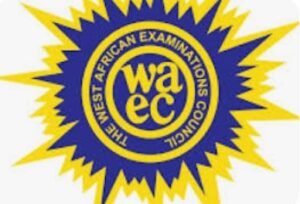Get free WAEC GCE F/Accounting 2025 (Obj/Essay) Questions and Answers for Private Candidates | WAEC Financial Accounting Obj/Essay Questions and Answers (12th Nov, 2025).
The 2025 WAEC GCE (Nov/Dec) Financial Accounting (Obj/Essay) Examination is one of the most important subjects for students who want to pursue careers in accounting, banking, finance, and business administration. This exam evaluates your ability to apply accounting principles, maintain accurate financial records, and prepare proper final accounts for sole traders, partnerships, and companies.

According to the official WAEC GCE timetable, the WAEC GCE F/Accounting 2025 (Obj/Essay) exam is scheduled for Wednesday, 12th November, 2025 and consists of:
-
Financial Accounting 2 (Essay): 08:30 a.m. – 11:00 a.m. (2 hrs 30 mins)
-
Financial Accounting 1 (Objective): 11:00 a.m. – 12:00 p.m. (1 hr)
This article provides a full breakdown of the exam structure, sample Obj/Essay questions with solutions, and proven tips to help you pass with confidence.
Exam Structure for WAEC GCE F/Accounting 2025
Paper 2 – Financial Accounting Essay
This section tests your ability to solve problems and prepare complete accounts.
-
10–12 questions will be set.
-
You are required to answer any five.
-
Full workings and neat presentation are compulsory for maximum marks.
Paper 1 – Financial Accounting Objective
This section contains 50 multiple-choice questions that test your speed and accuracy.
-
Covers bookkeeping, trial balance, final accounts, control accounts, depreciation, and bank reconciliation.
-
Answer quickly but carefully to avoid shading errors.
🎓 Join The WAEC Papers Room
Be part of our vibrant student community — get verified updates, exam tips, and connect with other candidates preparing for
WAEC GCE Financial Accounting 2025 exam and related subjects.
Stay informed. Stay connected. Success starts here!
Sample Essay Questions and Answers (Paper 2)
Question 1 – Theory
Explain five differences between a Receipts & Payments Account and an Income & Expenditure Account.
Answer:
-
Basis: Receipts & Payments is on a cash basis; Income & Expenditure is on accrual basis.
-
Opening Balance: Receipts & Payments shows opening balance; Income & Expenditure does not.
-
Purpose: Receipts & Payments is a cash summary; Income & Expenditure shows surplus or deficit.
-
Adjustments: No adjustments in Receipts & Payments, adjustments appear in Income & Expenditure.
-
Result: Receipts & Payments ends with cash/bank balance, Income & Expenditure ends with surplus/deficit.
Question 2 – Practical
Prepare a Trading Account for XYZ Enterprises:
-
Opening Stock: ₦120,000
-
Purchases: ₦500,000
-
Carriage Inwards: ₦20,000
-
Closing Stock: ₦140,000
-
Sales: ₦800,000
Solution:
XYZ ENTERPRISES TRADING ACCOUNT
For the Year Ended 31st December, 2024
| Dr | ₦ | Cr | ₦ |
|---|---|---|---|
| Opening Stock | 120,000 | Sales | 800,000 |
| Purchases | 500,000 | Closing Stock | 140,000 |
| Carriage Inwards | 20,000 | ||
| Cost of Goods Available | 640,000 | ||
| Less Closing Stock | (140,000) | ||
| Cost of Goods Sold | 500,000 | ||
| Gross Profit c/d | 300,000 | ||
| Total | 800,000 | Total | 800,000 |
Question 3 – Control Accounts
State three advantages of control accounts.
Answer:
-
Helps locate errors quickly.
-
Acts as a check against fraud.
-
Saves time by summarizing ledger balances.
Sample Objective Questions (Paper 1)
Q1: The purpose of a trial balance is to:
Answer: Test the arithmetical accuracy of the ledger.
Q2: Which of the following is NOT a subsidiary book?
Answer: Ledger
Q3: If a business purchases goods worth ₦200,000 on credit, what is the correct entry?
Answer: Debit Purchases Account, Credit Creditors Account
Q4: Depreciation is charged to:
Answer: Create a reserve for future replacement
Tips to Pass WAEC GCE F/Accounting 2025 (Obj/Essay)
-
Master Double Entry: Every transaction must balance.
-
Revise Formats: Learn Trading, Profit & Loss, Balance Sheet layouts.
-
Use Past Questions: Practice time management and question styles.
-
Show Workings Clearly: Examiners award marks for steps.
-
Be Neat: Good presentation makes your work easy to mark.
-
Work on Speed: Particularly for the Objective paper.
-
Focus on Key Areas: Control Accounts, Trial Balance, Final Accounts, Depreciation, Bank Reconciliation.
SEE ALSO
- 2025 WAEC Nov/Dec Further Mathematics (Obj/Essay) Answers
- 2025 WAEC GCE Home Management Practical Questions and Answers
- 2025 WAEC GCE Nov/Dec Catering Craft Practice Answers
- 2025 WAEC GCE Foods and Nutrition Practical Answers
Likely Areas of Focus for WAEC GCE F/Accounting 2025
-
Ledger Posting & Trial Balance
-
Manufacturing Accounts
-
Control Accounts & Suspense Accounts
-
Provision for Bad Debts
-
Partnership Accounts
-
Accounts of Non-Profit Organizations
Conclusion
The WAEC GCE F/Accounting 2025 (Obj/Essay) Examination will test both your theoretical knowledge and practical problem-solving skills. By following this guide, revising regularly, and practicing with past questions, you can excel on Wednesday, 12th November, 2025 and achieve a great result.
Remember, consistency, speed, and neat presentation are the keys to success.